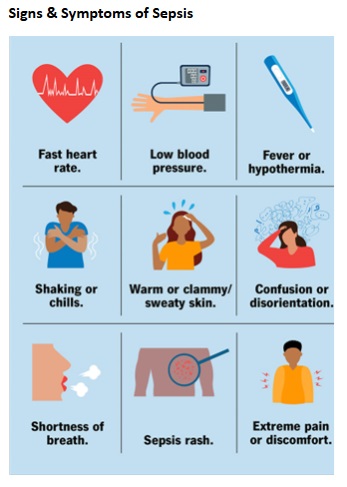How to help keep the elderly warm and safe in winter
 During the latter part of autumn and the cold, winter months, it is important to help older people stay safe and warm. Although cold weather can affect anyone, as we grow older we are more prone to losing body heat, often without even realising it.
During the latter part of autumn and the cold, winter months, it is important to help older people stay safe and warm. Although cold weather can affect anyone, as we grow older we are more prone to losing body heat, often without even realising it.
During the cold weather, older adults are at an increased risk for slips and falls and illnesses such as colds, cases of flu, pneumonia and even hypothermia.
Here we offer some tips and guidance on how to help your loved ones stay warm and well throughout the winter months.
The dangers of cold weather for older people
Older adults lose body heat faster than younger people, which often makes it difficult for them to tolerate colder weather. This is mainly due to the natural decrease in metabolic rate that occurs as we age, which lowers the amount of heat the body can produce.
If a person’s body temperature dips below the standard 37°C, dangerous health problems can arise, such as hypothermia. Hypothermia is a condition caused by an abnormally low body temperature and it sets in when body temperature dips below 35°C.
Older adults have a thinner layer of fat under the skin, making them even more susceptible to the cold. Health conditions that are more prevalent in old age like diabetes, peripheral artery disease and kidney disease can also restrict blood flow and lower body temperature.
Various other factors that contribute to cold sensitivity as we age include:
· Low blood pressure
· Loss of elasticity of the blood vessels
· Slower circulation
· Side effects of certain medications
If you or a loved one start to feel unwell due to the cold weather, seek advice from a pharmacist, or doctor or call the NHS helpline – 111. Don’t wait until the problem becomes serious to take action
 Tips for keeping safe and warm in winter
Tips for keeping safe and warm in winter
Wear shoes with grip
The combination of wet weather and cold winter temperatures can cause dangerous black ice to form on the roads and paths. Black ice is difficult for anyone to spot and can lead to slips and falls.
One way to protect your loved ones is to ensure they have the appropriate winter footwear. Help them choose a pair of winter boots or shoes that are waterproof and comfortable with lots of grip. This will allow them to enjoy being outdoors while helping prevent slips and falls.
Wear warm clothing
Bundling up in warm clothing is especially important during the winter months. Make sure your loved ones wrap up well with a warm coat, a fleece or wool jumper and a sturdy pair of boots. We lose much of our body heat from our heads and necks, so ensure they also have a warm scarf and hat as well.
While a thick jumper may seem like a good choice, wearing several layers will actually keep you warmer. This is because air becomes trapped between the different layers and acts as a form of insulation. Base layers such as thermal underwear or long-sleeved cotton shirts can be worn close to the skin with a cosy fleece or jumper on top.
Waterproof coats are also a great way to keep from getting wet. Just make sure they have something warm and cosy to wear underneath.
Check the weather
Heavy winds can quickly lower body temperature. Keep an eye on the weather forecast for particularly cold or windy days. On those days, encourage your loved ones to try to stay inside or in a warm place. If they must go out, make sure they dress for the weather and try to encourage them not to stay in the cold or wind for very long.
Keep moving
If your loved ones will be spending time outdoors, encourage them to keep moving to help their body regulate their own temperature. Try and encourage your loved ones to move around at least once an hour and avoid sitting still for long periods.
We know this can be easier said than done, especially if your loved one is living with frailty or mobility concerns. Here we provide some guidance and advice on physical activities that can help older adults stay active at any age.
Enjoy hot meals and drinks
Hot meals and warm foods can help keep you warm on a cold winter’s day. Eating warm and nutritionally-balanced meals can also keep your immune system healthy and prevent colds and cases of flu. Hearty soups and stews, porridge, jacket potatoes, and pasta dishes are all good choices to help older adults stay warm during winter.
Keeping warm at home
Cold temperatures can affect older adults even in their own homes. Here are some tips on how you can help your loved ones keep their homes warm this winter:
· Keep the home adequately heated at a temperature of at least 20°C to 21°C
· To save on heating bills, consider closing off rooms you are not using
· A hot water bottle or electric blanket can be used to warm a bed, but avoid using both at the same time as it can be dangerous
· If possible, move your sofa away from your radiator – while it may feel cosy, it can stop hot air from circulating properly
· Keep the windows and door shut tight and use draught excluders to help keep cold air out
· Draw your curtains as soon as it gets dark to help stop draughts from getting in
· The ground is where cool air circulates – use rugs to cover cold floors and try and keep your feet up if you feel cold
We’re here to help
At Everycare Wirral, we’ve supported older people to live safely and independently in their homes for over 10 years. Our professional carers understand how to encourage our clients to remain as active as possible while staying warm and well in winter.
As part of our comprehensive care planning process, we capture all the activities you or your loved one wishes to participate in. Your carer will facilitate and support your loved ones in enjoying their favourite hobbies and activities while actively encouraging them to try new things to make life stimulating and enjoyable.
We are experts in providing a fully managed, high-quality care services rated ‘Good’ by the Care Quality Commission (CQC). Contact our friendly team today to see how we can help you and your family




